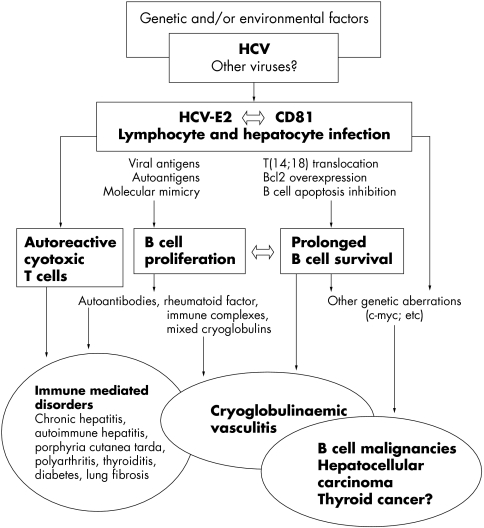Figure 1.
Possible aetiopathogenesis of mixed cryoglobulinaemia (MC) and other hepatitis C virus (HCV) related disorders. HCV infection may exert a chronic stimulus on the immune system. The interaction between HCV envelope protein E2 and CD81 on both hepatocytes and lymphocytes may be an important step in the cascade of events. T(14;18) translocation is commonly found in HCV infected individuals, particularly in patients with MC. The activation of the Bcl2 proto-oncogene may lead to prolonged B cell survival. B cell expansion is responsible for the production of various autoantibodies, including rheumatoid factor and cryoprecipitable immune complexes. Consequently, various autoimmune disorders and cryoglobulinaemic vasculitis may develop. In a minority of cases, indolent B cell proliferation may be complicated by frank malignant lymphoma. HCV is the major causative factor of hepatocellular carcinoma; moreover, a possible link between HCV and thyroid cancer has been hypothesised. There is a clinicoserological and pathological overlap among different HCV related diseases; mixed cryoglobulinaemia syndrome represents a crossroad between these autoimmune and neoplastic disorders.

